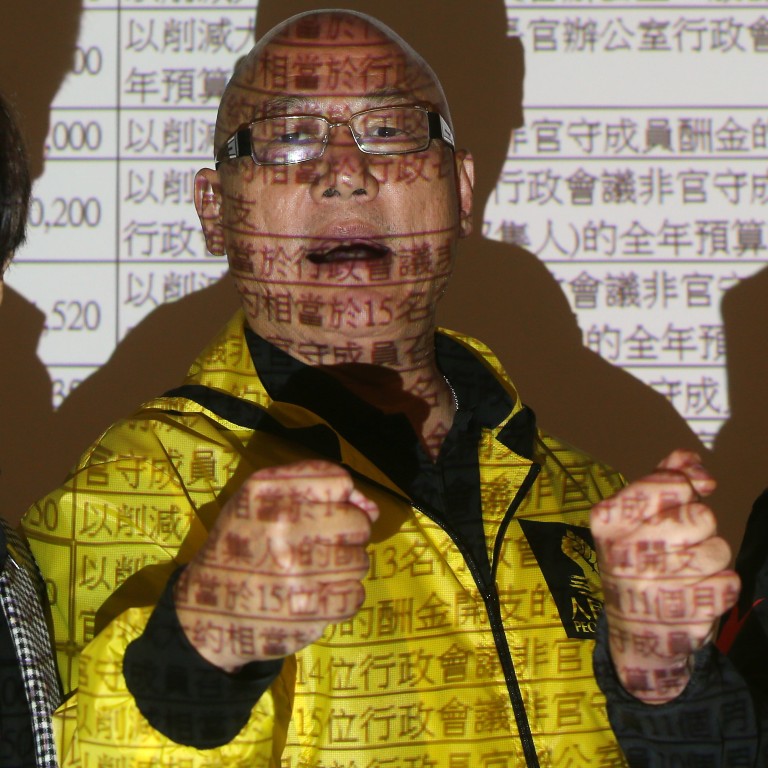
When politics trumps reason: Continual filibustering by Hong Kong’s pan-democrats has gone too far
Regina Ip says the repeated stalling tactics and abuse of the system in the legislature, the latest to obstruct passage of the copyright bill, are now affecting Hong Kong’s core interests

READ MORE: Hong Kong commerce minister says standoff over copyright bill is ‘like a nuclear bomb explosion’

For example, the rules permit an unlimited number of amendments to bills to be moved as long as they are “relevant” to the subject matter and not ruled “frivolous or meaningless” by Legco’s president. In April 2012, in their attempt to block the Legislative Council (Amendment) Bill 2012, a bill which prohibits legislators from standing for re-election within six months of their resignation, the gang of three – lawmakers “Long Hair” Leung Kwok-hung, Albert Chan Wai-yip and Wong Yuk-man – collectively moved more than 1,000 amendments to the bill. It took 85 hours and 50 minutes of debate, spread over 14 Legco sessions spanning five weeks, before the bill was passed.
READ MORE: A wish list for Hong Kong in 2016 to break the cycle of dysfunction
The rules governing the operation of the statutory committees which wield real power – the Finance Committee and its two subcommittees, on public works and the creation of directorate government posts – are equally lax. Under these rules, a legislator may move, without notice, motions to express a view on a proposal as long as they are “directly related to the agenda item”. This rule has opened up opportunities for the filibuster gang to move hundreds of amendments to government expenditure items, resulting in protracted delays.
READ MORE: Childish Hong Kong lawmakers are making a farce of the legislative process
In a determined effort to block the passage of these two projects, pan-democratic legislators have resorted to intensified filibustering of funding applications which come before them. As the result, of the 72 items before the public works subcommittee, only five, involving expenditure of HK$475 million, out of the government’s budget for the year of HK$70 billion, have been approved. Likewise, at the establishment subcommittee, only two of 24 items have been approved.

At this speed, Legco will have no time to deal with any business by the end of the current term in July, other than the debate on the chief executive’s policy address and the budget
Since the bill was reintroduced into Legco for enactment on December 16, the filibuster gang had called for a quorum 101 times before the meeting was aborted on January 7, owing to a walkout by all pan-democratic legislators. At this speed, Legco will have no time to deal with any business by the end of the current term in July, other than the debate on the chief executive’s policy address and the budget.
Repeated attempts to update the Copyright Ordinance since 1997 have run into fierce opposition in Legco largely because of netizens’ fear that their freedom of expression online would be affected. Pan-democratic legislators stand firmly with them, notwithstanding assurances from expert senior counsel that their “secondary creations” online would not constitute criminal offences. Netizens stand ready to lay siege to the legislature if the bill is passed. They cannot be reasoned with; nor can their supporters in Legco. So much for Hong Kong’s efforts to spur the creative industries if the intellectual property rights of artists and entrepreneurs are not protected. So much for Hong Kong’s future if politics continues to trump reason in Legco.
Regina Ip Lau Suk-yee is a legislator and chair of the New People’s Party

